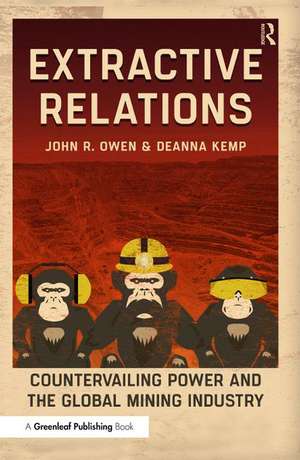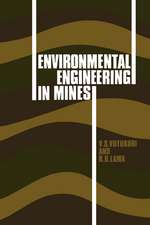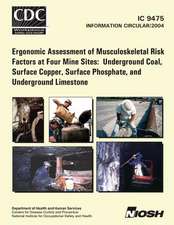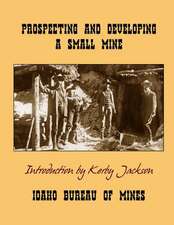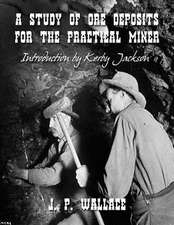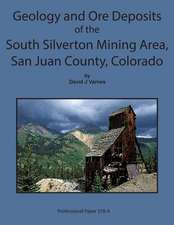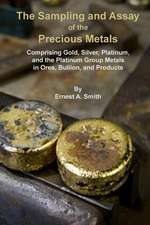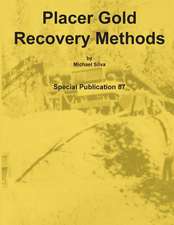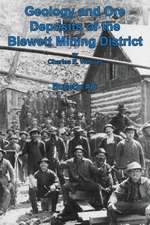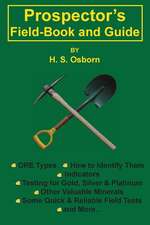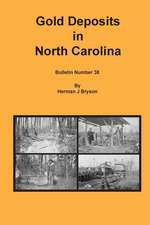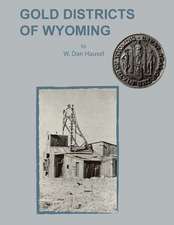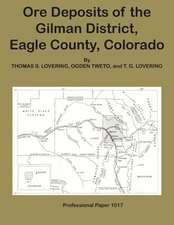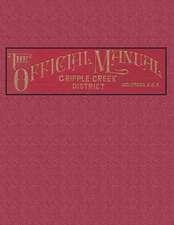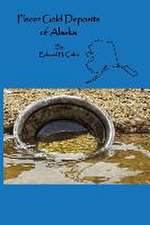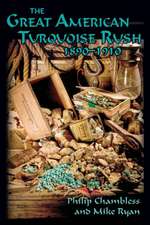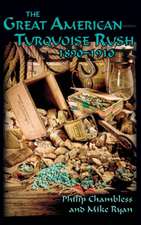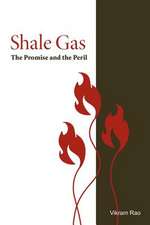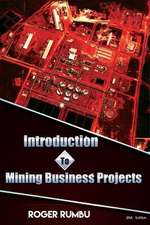Extractive Relations: Countervailing Power and the Global Mining Industry
Autor John R. Owen, Deanna Kempen Limba Engleză Paperback – 3 iul 2017
The authors develop a unique theoretical approach that highlights the different types and uses of power in these settings. This perspective is supported by the authors' own sustained engagement with the mining sector over many years, drawing on cases from over twenty countries. The analysis of these issues from both 'inside' and 'outside' the sector is a key point of differentiation. For readers seeking to understand how mining companies interpret and interact with the communities and interests around their operations, this book provides invaluable insight and analysis.
| Toate formatele și edițiile | Preț | Express |
|---|---|---|
| Paperback (1) | 465.49 lei 6-8 săpt. | |
| Taylor & Francis – 3 iul 2017 | 465.49 lei 6-8 săpt. | |
| Hardback (1) | 763.39 lei 6-8 săpt. | |
| Taylor & Francis – 3 iul 2017 | 763.39 lei 6-8 săpt. |
Preț: 465.49 lei
Nou
Puncte Express: 698
Preț estimativ în valută:
89.07€ • 93.25$ • 73.70£
89.07€ • 93.25$ • 73.70£
Carte tipărită la comandă
Livrare economică 05-19 aprilie
Preluare comenzi: 021 569.72.76
Specificații
ISBN-13: 9781783534791
ISBN-10: 1783534796
Pagini: 282
Dimensiuni: 148 x 210 x 22 mm
Greutate: 0.36 kg
Ediția:1
Editura: Taylor & Francis
Colecția Routledge
Locul publicării:Oxford, United Kingdom
ISBN-10: 1783534796
Pagini: 282
Dimensiuni: 148 x 210 x 22 mm
Greutate: 0.36 kg
Ediția:1
Editura: Taylor & Francis
Colecția Routledge
Locul publicării:Oxford, United Kingdom
Public țintă
PostgraduateCuprins
1. Introduction 2. An interlude on social licence and countervailing power: from metaphor to realism 3. Social licence and mining: A critical perspective 4. An interlude on community relations: A dual proposition 5. Community relations and mining: Core to business but not core business 6. An interlude on the industrial rendering of voluntary obligation over involuntary displacement 7. Mining-induced displacement and resettlement: a critical appraisal 8. An interlude on the confluence of countervailing pressures 9. 'Free prior and informed consent', social complexity and the mining industry 10. An interlude on remedy systems and the dangers of monopoly capital 11. Grievance handling at a foreign-owned mine in Southeast Asia 12. Conclusion
Notă biografică
JOHN OWEN is an Associate Professor at the Centre of Social Responsibility in Mining (CSRM), at the Sustainable Minerals Institute (SMI), University of Queensland, Australia
DEANNA KEMP is a Professor at the Sustainable Minerals Institute (SMI), University of Queensland, Australia.
DEANNA KEMP is a Professor at the Sustainable Minerals Institute (SMI), University of Queensland, Australia.
Recenzii
'Brilliant. I used ideas from the book straight after reviewing. This work has already had an impact on one company’s board. May it impact many more and make its own unique contribution to mainstreaming the corporate responsibility to respect human rights.'
Richard Boele, Global Head, KPMG Business and Human Rights Network
'An insightful and though-provoking work. It should be read by all those interested in exploring ways of addressing the concerns of local communities, including indigenous peoples, who are confronted by environmental and social impacts from mining.'
S. James Anaya, Dean and Charles Inglis Thomson Professor, University of Colorado Law School
'A provocative analysis of the dilemmas in attempting to reconcile corporate and community interests around mining operations, especially in areas of weak governance—one that is deeply informed by how things look and work on the ground.'
John G. Ruggie, Berthold Beitz Professor in Human Rights and International Affairs, Harvard Kennedy School of Government
'In this impressive volume, Owen and Kemp bring a conceptual sharpness to their well-grounded understanding of mining-community relationships across the globe. It is a theoretically original and ultimately hopeful view of the contribution that the mining industry can make to improving rather than degrading the lot of affected communities. The detail, nuance and balance they bring to the question of large-scale mining makes it required reading for industry, practitioners and academics alike.'
Glenn Banks, Professor, School of People, Environment and Planning, University of Massey
'Deanna Kemp and John Owen have produced a thoughtful analysis of the relationship between communities and industrial mining, which challenges the status quo. The book is a plea for social literacy and learning within the industry – for Coleridge’s “education and truth”. The book reflects current political debates about who benefits from GDP and globalisation, where power lies, and what forces serve just outcomes. The authors lead us, in a provocative but balanced argument, to a radically different way of sharing power at community and mine level. This is a book for thinkers and leaders in the industry.'
David Patrick Rice, Fellow, University of Cambridge Institute for Sustainability Leadership, and Senior Adviser, Critical Resource.
'In the growing community of scholars studying the complex relations among mining, society and nature, there are few – perhaps none – who understand the inner workings of the mining industry as deeply as do Deanna Kemp and John Owen. In this book, the authors reveal the depth and nuance of their knowledge as they explore how countervailing forces and powers within society and companies interact to affect the regulation of extractive industry impacts on communities and environments. The book strikes a sober and insightful balance between realism and hope in addressing the possibilities for healthier relations between mining and communities. Social scientists, activists and company workers will all find much to take away from this book – it is an important read for all of us.'
Anthony Bebbington, Milton P. and Alice C. Higgins Professor of Environment and Society, Clark University, USA
'In the current age of distrust, when backlash against the private sector as agents of progress is real, Owen and Kemp remind us to “mind the gap” between conventional CSR, and strategies based on engaging with communities as true partners. This book is timely because - despite this backlash - many in communities and civil society are looking to global mining companies to lead by recognizing the power that exists in communities, along with their natural resource wealth.'
Stephen D’Esposito, President, RESOLVE
Richard Boele, Global Head, KPMG Business and Human Rights Network
'An insightful and though-provoking work. It should be read by all those interested in exploring ways of addressing the concerns of local communities, including indigenous peoples, who are confronted by environmental and social impacts from mining.'
S. James Anaya, Dean and Charles Inglis Thomson Professor, University of Colorado Law School
'A provocative analysis of the dilemmas in attempting to reconcile corporate and community interests around mining operations, especially in areas of weak governance—one that is deeply informed by how things look and work on the ground.'
John G. Ruggie, Berthold Beitz Professor in Human Rights and International Affairs, Harvard Kennedy School of Government
'In this impressive volume, Owen and Kemp bring a conceptual sharpness to their well-grounded understanding of mining-community relationships across the globe. It is a theoretically original and ultimately hopeful view of the contribution that the mining industry can make to improving rather than degrading the lot of affected communities. The detail, nuance and balance they bring to the question of large-scale mining makes it required reading for industry, practitioners and academics alike.'
Glenn Banks, Professor, School of People, Environment and Planning, University of Massey
'Deanna Kemp and John Owen have produced a thoughtful analysis of the relationship between communities and industrial mining, which challenges the status quo. The book is a plea for social literacy and learning within the industry – for Coleridge’s “education and truth”. The book reflects current political debates about who benefits from GDP and globalisation, where power lies, and what forces serve just outcomes. The authors lead us, in a provocative but balanced argument, to a radically different way of sharing power at community and mine level. This is a book for thinkers and leaders in the industry.'
David Patrick Rice, Fellow, University of Cambridge Institute for Sustainability Leadership, and Senior Adviser, Critical Resource.
'In the growing community of scholars studying the complex relations among mining, society and nature, there are few – perhaps none – who understand the inner workings of the mining industry as deeply as do Deanna Kemp and John Owen. In this book, the authors reveal the depth and nuance of their knowledge as they explore how countervailing forces and powers within society and companies interact to affect the regulation of extractive industry impacts on communities and environments. The book strikes a sober and insightful balance between realism and hope in addressing the possibilities for healthier relations between mining and communities. Social scientists, activists and company workers will all find much to take away from this book – it is an important read for all of us.'
Anthony Bebbington, Milton P. and Alice C. Higgins Professor of Environment and Society, Clark University, USA
'In the current age of distrust, when backlash against the private sector as agents of progress is real, Owen and Kemp remind us to “mind the gap” between conventional CSR, and strategies based on engaging with communities as true partners. This book is timely because - despite this backlash - many in communities and civil society are looking to global mining companies to lead by recognizing the power that exists in communities, along with their natural resource wealth.'
Stephen D’Esposito, President, RESOLVE
Descriere
Extractive Relations explores the nature of industrial power and its role in shaping what we understand to be the global mining sector. For readers seeking to understand how mining companies interpret and interact with the communities and interests around their operations, this book provides invaluable insight and analysis.
